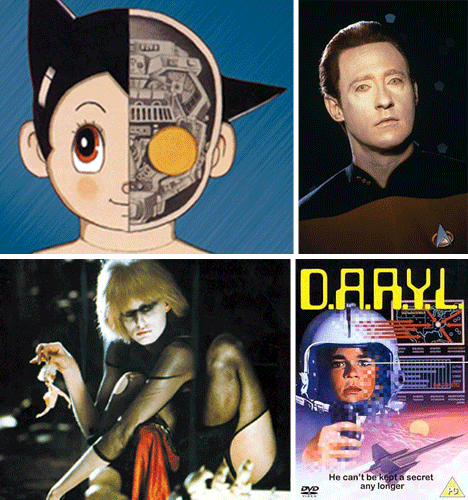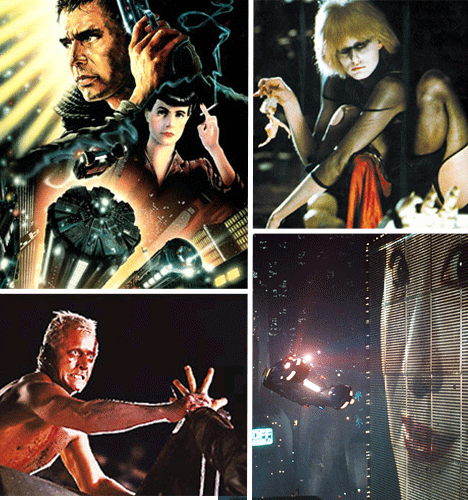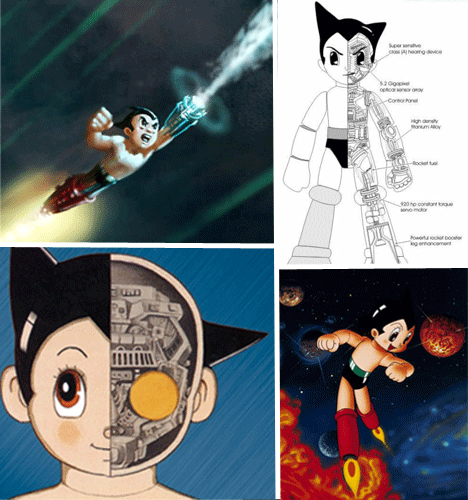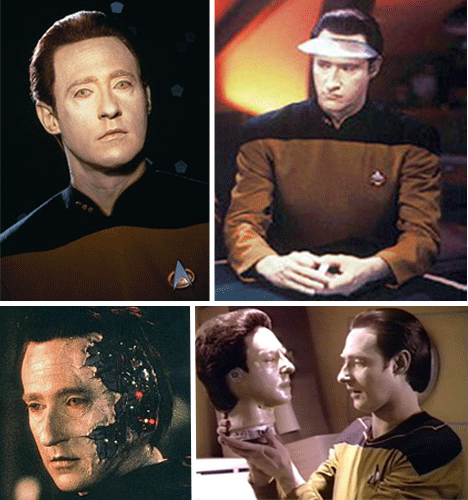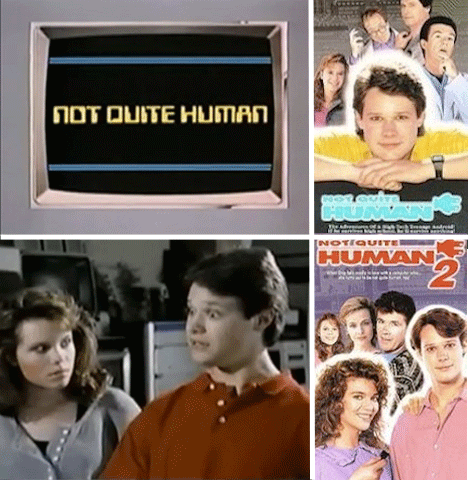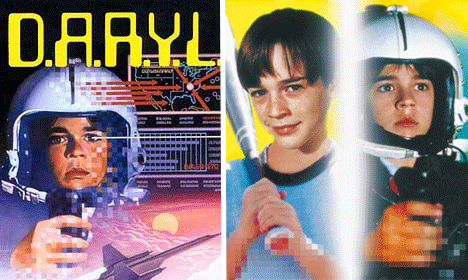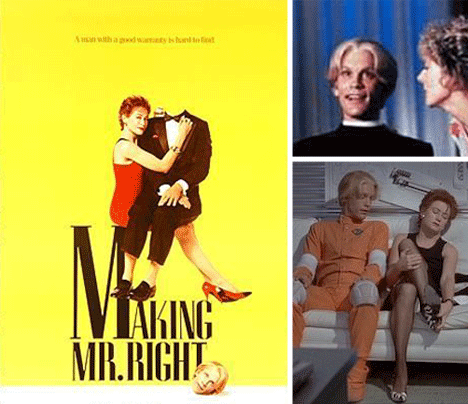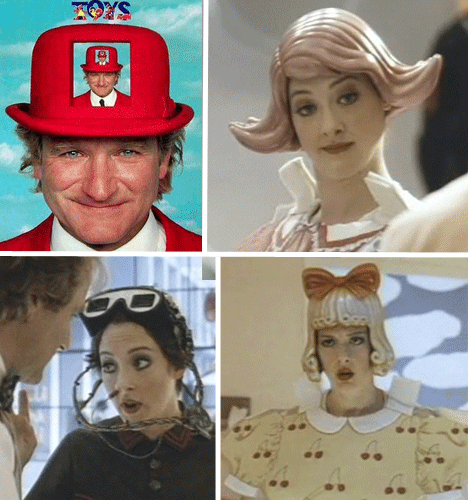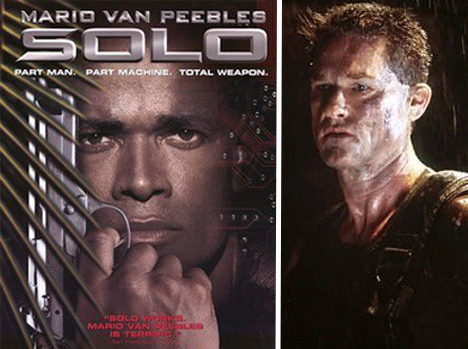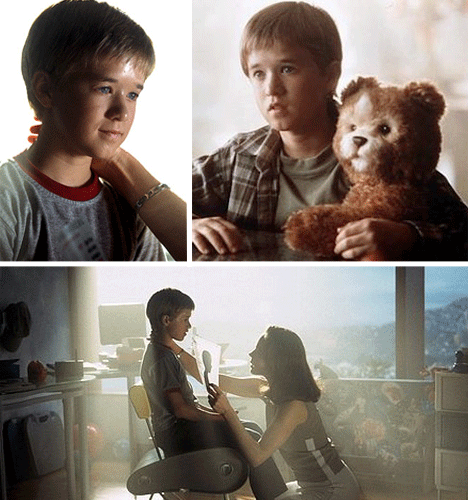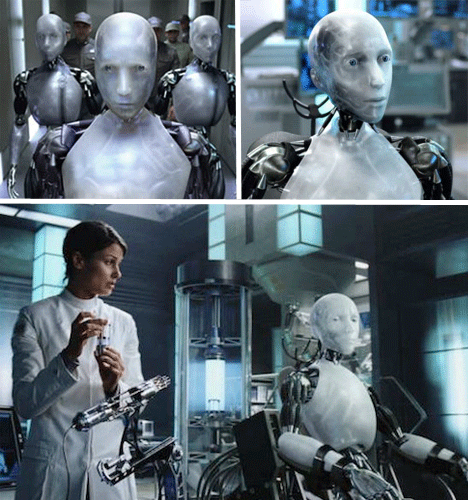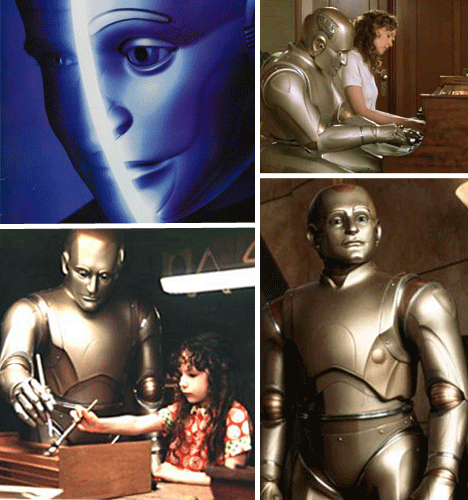What makes us human? With computer and robotics technology improving every day, we’ve already seen room-sized computers shrink to the size of a dime and cold metal has transformed into an increasingly organic aesthetic. With the current trajectory of technological advances, we’re bound to be faced with a situation in the future where the line between humanity and machine becomes blurred – not least of which when it comes to military robots. Here are 11 robots in film faced with a crisis of identity. The obstacles faced by these compelling characters force us to analyze our own humanity. Where is the line between man and machine?
Roy Batty (Blade Runner)
(Images via VoyagerOnline, FilmSquish, SciFiCool, SeanAx)
Roy Batty is the leader of a band of four Nexus 6 model replicants – the most sophisticated bioengineered artificial humans yet created. All replicants have a failsafe, a four year lifespan to protect against gaining emotions, and Roy is obsessed with meeting his maker before he dies. The film follows a “blade runner,” a detective who hunts down and kills replicants, as he tracks Roy down and eventually succeeds in killing him. Roy’s desperation and overwhelming desire to discover his origins reflects our search for meaning in our own lives.
Astro Boy (Astro Boy)
(Images via FirstShowing, OberonPlace, chud.com, SMH)
Astro Boy was a robot designed by Doctor Tenma to replace a deceased son. When Doctor Tenma realized Astro Boy would never grow, or experience any of the changes of a human boy, he abandoned him. With his superhuman strength, the ability to fly, and the ability to translate over 60 languages, Astro Boy’s skills are as varied as the media with which he’s been featured. From manga to movies, Astro Boy’s sad origins and hidden strength have struck a chord with audiences the world over.
Lieutenant Commander Data (Star Trek: The Next Generation)
(Images via MichaelROConnor, Dr. Mike’s Steak Dinner, FashionFunky, Kindasophical)
As the first, and only, sentient android working in Star Fleet, Lieutenant Commander Data has impressed audiences across seven seasons of Star Trek: The Next Generation, and four subsequent films. With incredible strength and computational abilities, his logic is in constant battle with his desire to become increasingly human. Data’s attempts to decipher the inconsistent behavior of his human colleagues, and his jilted attempts at impersonating them, are a consistent source of humor. With the addition of an emotion chip Data is able to come closer to humanity than he ever thought possible.
Chip Carson (Not Quite Human)
(Images via SomethingAwful, and RetroJunk)
Dr. Jonas Carson created an android in the form of a 17 year old boy nicknamed “Chip” and adopted him as his own son. Chip struggles to conform to human norms while attending high school, and in so doing, exhibits a more “human” loyalty and honesty than many of the humans around him. Chip’s misadventures were featured in three made for TV movies produced by Disney. The series is filled with the campy humor and awkward situations so common in 1980’s family films.
Daryl (D.A.R.Y.L.)
(Images via Ice Pirate Ship, GeekSix)
D.A.R.Y.L., the story of a “Data-Analysing Robot Youth Lifeform,” comes at us from the 1980’s fascination with emerging technologies. Daryl is found wandering in the road, lacking any memory of who he is or how he got there. Fostered by a nice couple, he soon begins to display superhuman abilities that reveal his true nature. When the Government tracks him down and erases his newly formed memories, the emotions he’d begun to express are initially removed. Daryl’s personality is not easily dissolved and his emotions continue to surface. The military experiment is considered a failure and scientists at the lab help Daryl escape back to his foster family. One of the scientists later justifies aiding Daryl by saying, “General, a machine becomes human … when you can’t tell the difference anymore.”
Ulysses (Making Mr. Right)
(Images via PublisPain, Geebobg, Yum23)
Making Mr. Right is the story of Ulysses, an android created in the image of Jeff Powers, a brilliant and antisocial scientist. Ulysses was designed to go on expeditions deep into space, where a human being would struggle with such lengthy solitude. It soon becomes apparent, however, that Ulysses has the social intuition and emotion that his creator lacks, and Jeff Powers decides to take the trip instead; Ulysses takes over Jeff Power’s life, as he ended up being more “human” than his human creator.
Alsatia Zevo (Toys)
(Images via Aje, Videodetective)
Alsatia Zevo is the eccentric sister of Robin Williams’ character Leslie Zevo, in the film Toys. Alsatia lives inside a gigantic dollhouse and wears unusual clothing that appears fit for a life-size paper doll. The irony of Alsatia’s situation is only made clear after she’s hurt, and revealed to be a machine. Since Alsatia’s true nature is revealed so late in the film, the audience has plenty of time to become emotionally invested in her well-being, and the shock of this discovery throws off one’s conception of humanity. As is often the case in these situations, many of the humans in the film seem to have less of a zest for life than do their robotic counterparts.
Solo (Solo) and Todd (Soldier)
(Images via technovelgy, FreeWebs)
The Science Fiction genre is filled with examples of robots as soldiers, and fiction is equally filled with examples of these soldiers revealing surprising compassion. In the film Solo, Solo is a robotic soldier created to be a killing machine. During his first mission, mistakes in his programming result in the development of a conscience, and he turns the table on his creators by defending the very people he was sent to destroy. Todd, from the film Soldier, is an interesting twist on the genre, as he’s the flip side of the coin: a human brought up from birth to act as nothing but a sociopathic murdering machine. Todd was never shown emotion and has spent an entire lifetime executing commands as if he was a machine, until a unique set of circumstances brings forth an upwelling of humanity.
David (A.I. Artificial Intelligence)
(Images via Chaddiez, SceneStealers, Filmcritic)
Originally created as an emotional replacement to a real son crippled with a debilitating illness, David in Stanley Kubrick’s posthumously released work A.I. Artificial Intelligence, was created to exhibit the same emotional complexity as his human counterparts. David’s design becomes a cruel joke, however, when he’s abandoned by his family and left to fend for himself in a world that sees robots as nothing but tools to be mercilessly used and abused. Kubrick explores the dark side of humanity, and our future, as David becomes frozen and survives in hibernation long enough to see the extinction of the human race.
Sonny (I, Robot)
(Images via EnglishFilms, Calico, CyberPunkReview)
In I, Robot, the film based on Isaac Asimov’s award winning anthology, Sonny does something that should not be possible for a robot: Murder. Sonny and his fellow robots are ostensibly ruled by Asimov’s three rules of robotics, which don’t allow for a robot to harm a human. During the investigation of Sonny’s controversial action, the contradiction between human directives for robots and our own destructive natures is explored at an action-packed pace. Despite the fact that Sonny was the first robot to hurt a human, he risks everything to save humankind from a robotic uprising.
Andrew Martin (Bicentennial Man)
(Images via Our Daily Read, FreeInfoSociety, TheCIA, AllMoviePhoto)
Andrew Martin’s situation is arguably the most compelling example in this collection. Created as a servant and companion for a wealthy family, Robin Williams’ character is given his freedom and spends over one hundred years pursuing the goal of becoming fully human. Andrew falls in love, but is unable to get married because he’s not legally human. In order to fulfill his destiny, he slowly transitions from robotic parts to organic prosthetics, until he is no longer immortal. Andrew is pronounced human as he lies on his deathbed, and his marriage is made legal right before he closes his eyes for the last time. Andrew’s willingness to give up his immortality reveals a deep and unique understanding of what makes life special.
![]()
